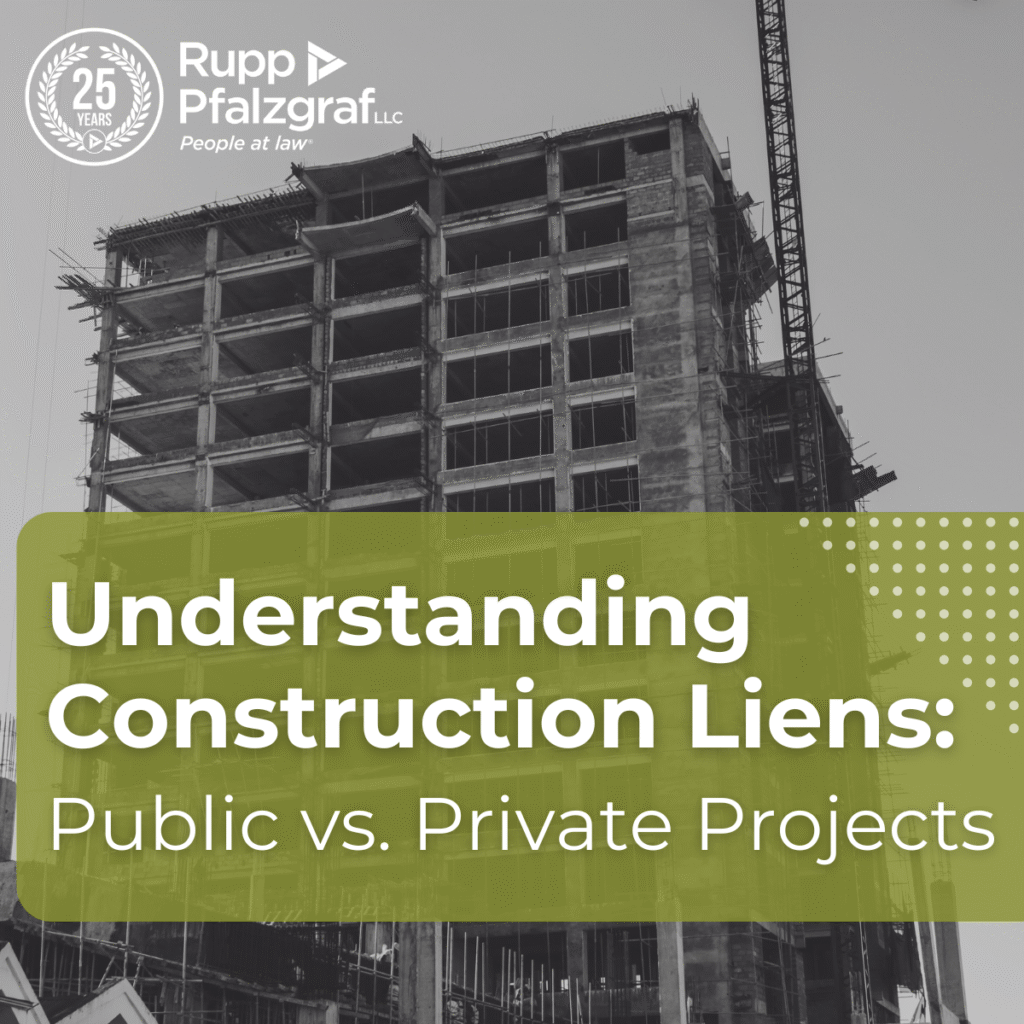
When payments for labor, materials, or services provided on a construction project are delayed or withheld, construction liens offer contractors, subcontractors, and other professionals a legal pathway to protect and pursue the money they are rightfully owed. However, it is important to understand what a lien is and how it works differently for private and public projects before filing one.
What Is a Construction Lien?
At its core, a construction lien is a claim on real property or public contract funds. It does not guarantee payment automatically, but it serves as a way to enforce payment if it is withheld. Filing a lien notifies lenders, sureties, and subcontractors that project obligations are not being met, which can stop the flow of money and even interfere with the sale of the property.
Private Improvement Liens
How a lien applies depends on the type of project. For private construction projects, which involve real property not owned by the state or a public corporation, a lien attaches directly to the property being improved. This includes permanent changes such as demolition, construction, repairs, or alterations. Many parties can file a private lien, including contractors, subcontractors, laborers, suppliers, landscapers, and licensed professionals like architects, engineers, and surveyors.
Public Improvement Liens
Public improvement liens work differently. They apply to work done on property owned by the state or a public corporation. Instead of attaching to the property itself, these liens attach to the contract funds held by the public owner. While most of the same parties can file liens on public projects, some cannot. General contractors, as well as architects or engineers who have a direct contract with the public owner, are not allowed to file public liens.
Special Considerations for Public Projects
There are important details to keep in mind for public projects. Work done for quasi-public entities, such as authorities or industrial development agencies (IDAs), should be treated like private projects when it comes to liens. Also, public property leased to private parties may not allow lien rights. Federal projects do not have lien rights under state law.
Whether you’re working on a private or public project, understanding the type of lien available to you is the first step in protecting your right to payment. If you have questions about construction liens or need guidance regarding a payment dispute, our Construction Law team is here to help. Reach out to discuss your specific situation and get the support you need.

